Kia Niro vs SEAT Leon – Which one offers the better deal?
Two cars, one duel: Kia Niro meets SEAT Leon.
Which one wins in performance, efficiency and value for money? Find out now!
Costs and Efficiency:
Looking at overall running costs, both models reveal some interesting differences in everyday economy.
SEAT Leon has a a bit advantage in terms of price – it starts at 24500 £, while the Kia Niro costs 29100 £. That’s a price difference of around 4680 £.
Fuel consumption also shows a difference: SEAT Leon manages with 1.20 L and is therefore clearly more efficient than the Kia Niro with 2.40 L. The difference is about 1.20 L per 100 km.
As for range, the SEAT Leon performs convincingly better – achieving up to 133 km, about 71 km more than the Kia Niro.
Engine and Performance:
Power, torque and acceleration are the classic benchmarks for car enthusiasts – and here, some clear differences start to show.
When it comes to engine power, the SEAT Leon has a evident edge – offering 272 HP compared to 180 HP. That’s roughly 92 HP more horsepower.
In acceleration from 0 to 100 km/h, the SEAT Leon is evident quicker – completing the sprint in 7.70 s, while the Kia Niro takes 9.90 s. That’s about 2.20 s faster.
In terms of top speed, the SEAT Leon performs slightly better – reaching 220 km/h, while the Kia Niro tops out at 185 km/h. The difference is around 35 km/h.
There’s also a difference in torque: SEAT Leon pulls noticeable stronger with 360 Nm compared to 265 Nm. That’s about 95 Nm difference.
Space and Everyday Use:
Beyond pure performance, interior space and usability matter most in daily life. This is where you see which car is more practical and versatile.
Both vehicles offer seating for 5 people.
In curb weight, SEAT Leon is minimal lighter – 1344 kg compared to 1474 kg. The difference is around 130 kg.
In terms of boot space, the Kia Niro offers a bit more room – 451 L compared to 380 L. That’s a difference of about 71 L.
In maximum load capacity, the Kia Niro performs barely noticeable better – up to 1445 L, which is about 144 L more than the SEAT Leon.
When it comes to payload, SEAT Leon slightly takes the win – 521 kg compared to 466 kg. That’s a difference of about 55 kg.
Who comes out on top?
Overall, the SEAT Leon shows itself to be leaves the rival little chance and secures the title of DriveDuel Champion.
It convinces with the more balanced overall package and proves to be the more versatile choice for everyday use.
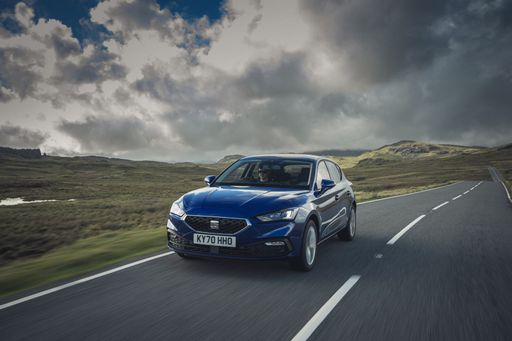 @ SEAT S.A. / SEAT Media Center
@ SEAT S.A. / SEAT Media Center
SEAT Leon
Kia Niro
The Kia Niro blends clever packaging and modern styling into a compact crossover that’s refreshingly sensible for daily life. It’s comfortable, economical and packed with user‑friendly tech, so if you want a fuss‑free family car with a touch of green credibility, the Niro is worth a test drive.
details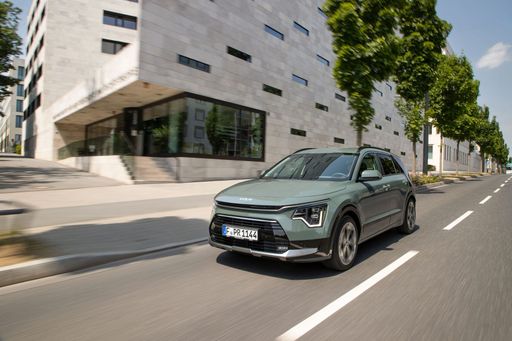 @ Kia Corporation
@ Kia Corporation
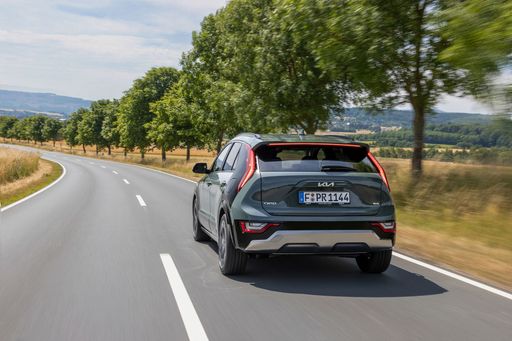 @ Kia Corporation
@ Kia Corporation
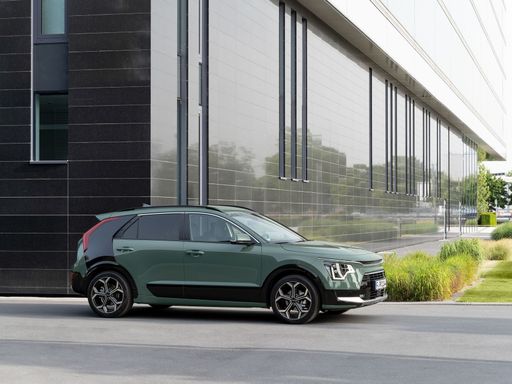 @ Kia Corporation
@ Kia Corporation
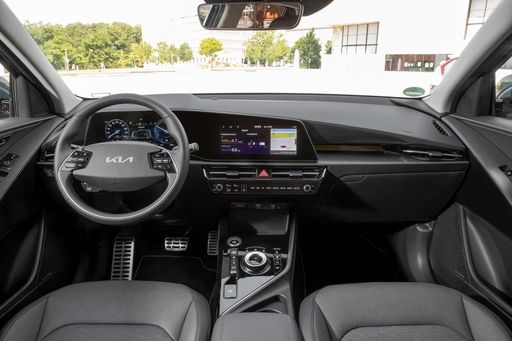 @ Kia Corporation
@ Kia Corporation
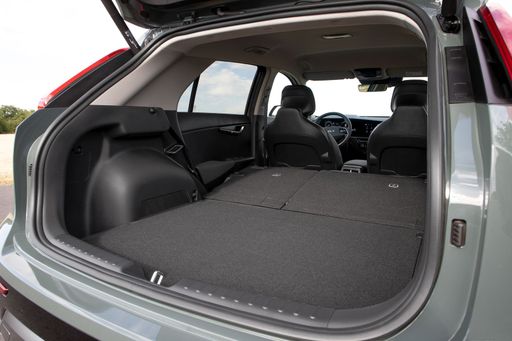 @ Kia Corporation
@ Kia Corporation
SEAT Leon
SEAT Leon pairs sharp, modern styling with a cabin that's sensible and slightly sporty, making it an appealing choice for buyers who want flair without fuss. It drives with eager composure and offers a neat balance of comfort and agility, so you get everyday usability with a wink of fun.
details @ SEAT S.A. / SEAT Media Center
@ SEAT S.A. / SEAT Media Center
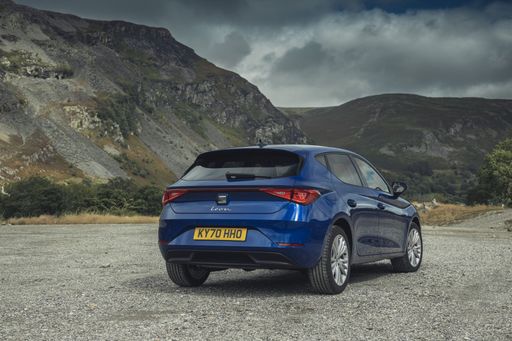 @ SEAT S.A. / SEAT Media Center
@ SEAT S.A. / SEAT Media Center
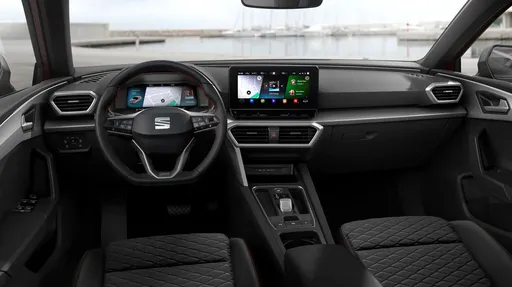 @ SEAT S.A. / SEAT Media Center
@ SEAT S.A. / SEAT Media Center
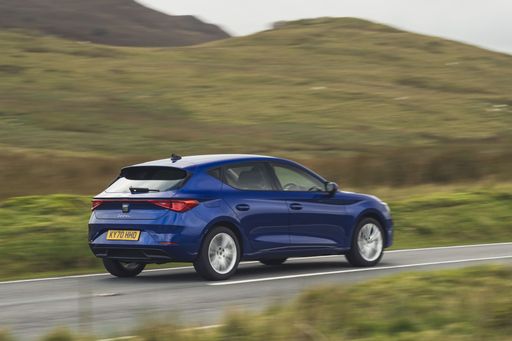 @ SEAT S.A. / SEAT Media Center
@ SEAT S.A. / SEAT Media Center
 @ Kia Corporation
@ Kia Corporation
|
 @ SEAT S.A. / SEAT Media Center
@ SEAT S.A. / SEAT Media Center
|
|
|
|
Costs and Consumption |
|
|---|---|
|
Price
29100 - 38600 £
|
Price
24500 - 36400 £
|
|
Consumption L/100km
2.4 - 4.9 L
|
Consumption L/100km
1.2 - 5.5 L
|
|
Consumption kWh/100km
-
|
Consumption kWh/100km
-
|
|
Electric Range
57 - 62 km
|
Electric Range
133 km
|
|
Battery Capacity
1.3 - 11.1 kWh
|
Battery Capacity
19.70 kWh
|
|
co2
53 - 111 g/km
|
co2
27 - 126 g/km
|
|
Fuel tank capacity
37 - 42 L
|
Fuel tank capacity
40 - 45 L
|
Dimensions and Body |
|
|---|---|
|
Body Type
SUV
|
Body Type
Hatchback
|
|
Seats
5
|
Seats
5
|
|
Doors
5
|
Doors
5
|
|
Curb weight
1474 - 1594 kg
|
Curb weight
1344 - 1657 kg
|
|
Trunk capacity
348 - 451 L
|
Trunk capacity
270 - 380 L
|
|
Length
4420 mm
|
Length
4368 mm
|
|
Width
1825 mm
|
Width
1799 mm
|
|
Height
1545 mm
|
Height
1442 - 1460 mm
|
|
Max trunk capacity
1342 - 1445 L
|
Max trunk capacity
1187 - 1301 L
|
|
Payload
466 kg
|
Payload
473 - 521 kg
|
Engine and Performance |
|
|---|---|
|
Engine Type
Full Hybrid, Plugin Hybrid
|
Engine Type
Petrol, Petrol MHEV, Diesel, Plugin Hybrid
|
|
Transmission
Automatic
|
Transmission
Manuel, Automatic
|
|
Transmission Detail
Dual-Clutch Automatic
|
Transmission Detail
Manual Gearbox, Dual-Clutch Automatic
|
|
Drive Type
Front-Wheel Drive
|
Drive Type
Front-Wheel Drive
|
|
Power HP
138 - 180 HP
|
Power HP
116 - 272 HP
|
|
Acceleration 0-100km/h
9.9 - 11.4 s
|
Acceleration 0-100km/h
7.7 - 10.5 s
|
|
Max Speed
170 - 185 km/h
|
Max Speed
197 - 220 km/h
|
|
Torque
265 Nm
|
Torque
220 - 360 Nm
|
|
Number of Cylinders
4
|
Number of Cylinders
4
|
|
Power kW
102 - 132 kW
|
Power kW
85 - 200 kW
|
|
Engine capacity
1580 cm3
|
Engine capacity
1498 - 1968 cm3
|
General |
|
|---|---|
|
Model Year
2025
|
Model Year
2024 - 2025
|
|
CO2 Efficiency Class
C, B
|
CO2 Efficiency Class
D, B
|
|
Brand
Kia
|
Brand
SEAT
|
Is the Kia Niro offered with different drivetrains?
The Kia Niro is available as Front-Wheel Drive.
The prices and data displayed are estimates based on German list prices and may vary by country. This information is not legally binding.
